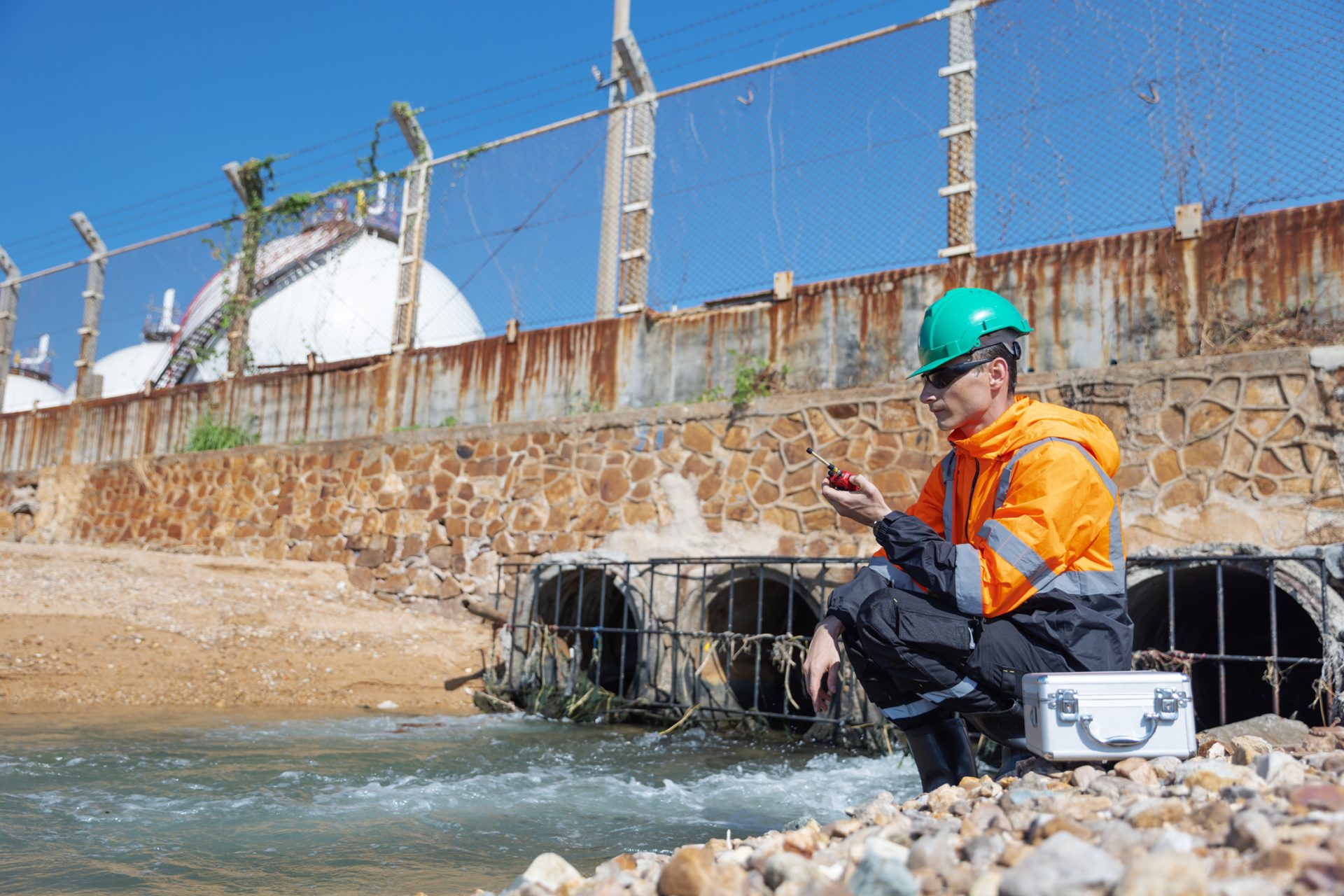Why is Professional Licensure Important for Engineers?
The safety of buildings, bridges, roads, and other structures and technologies used in our everyday lives depends on licensed professional engineers and surveyors who have successfully demonstrated a level of competence through education, experience, and examination requirements. Engineers’ standards for professional licensure provide standards necessary to protect public health and safety. Education, experience, and examinations are the three pillars required in your journey to become a licensed professional engineer (PE). You’ve begun the first step of this journey by starting your environmental engineering education at Unity Environmental University. Public protection is critical in highly complex, technical engineering fields where the public does not have the specialized knowledge needed to evaluate qualifications and performance. Once licensed, professional engineers must adhere to a strict code of conduct that requires them to practice in a manner that safeguards the health, safety, and welfare of the public.
https://ncees.org/licensure/why-licensure-matters/
What are the Steps to Becoming a Licensed Environmental Engineer?
- Your first step is to earn your Bachelor of Science degree in environmental engineering from Unity.
- As you near graduation, you will practice and prepare to take the Fundamentals of Engineering (FE) exam. This is a required step toward becoming a licensed professional engineer (PE).
- After graduation, you will need relevant work experience. Most states require four years of supervised work experience before you can take the Principles and Practice of Engineering (PE) exam.
- You will need to take and pass the PE exam before earning your Professional Engineering license, demonstrating your expertise and qualifications for higher-level environmental engineering careers.
- Unity will prepare you to be a life-long learner, and you might consider post-graduate education or special certifications. Some professionals pursue a master’s degree to specialize in advanced topics or conduct research. Don’t want to get your masters? Certifications in sustainability, air quality, or hazardous materials management can also enhance your qualifications!
https://ppi2pass.com/resources/fe-exam/what-does-an-environmental-engineer-do
What is the FE Exam and Why Does it Matter?
The Fundamentals of Engineering (FE) is a graduate’s first step toward becoming a licensed professional engineer. Passing the FE exam allows you to become an Engineer in Training (EIT) or Engineering Intern (EI), and is a prerequisite for taking the Professional Engineering (PE) exam later on. We recommend taking the FE Environmental Engineering exam after completing about 100 credits of coursework. As a Unity student, you’ll be well prepared to take the exam. Every topic on the FE exam is in our curriculum, setting you up for success! You are able to assess your progress along the way by taking periodic self-assessments with questions similar to those you will find on the FE exam, so you can feel confident in your preparation and identify any areas that need additional focus before taking the actual exam.
How Do I Sign Up for the FE Exam?
The registration process for the FE exam varies state to state according to individual Licensing Boards. You will choose the appropriate version of the FE exam (Unity students will be best prepared for the Environmental Engineering program) so be sure to check which version you are signing up for. Maine allows students to take the exam anytime, but it varies state to state. Find out how to sign up in your state here: https://ncees.org/exams/fe-exam/
The FE Exam is a computer-based exam administered year-round at NCEES-approved Pearson VUE test centers. A $225 exam fee is payable directly to NCEES.
The FE exam includes 110 questions. The exam appointment time is 6 hours long and includes:
- Nondisclosure agreement (2 minutes)
- Tutorial (8 minutes)
- Exam (5 hours and 20 minutes)
- Scheduled break (25 minutes)
Reasonable accommodations are available for examinees who meet certain eligibility criteria and sufficiently document their request.
What is the Timeline for Earning Your Professional Engineering (PE) License?
Like all undergraduate programs at Unity, our environmental engineering program prepares grads to start their engineering career.
After passing the FE exam, you will need to work under a registered engineer for at least four years. This can be either after earning your BS degree or, in some states, after passing the FE exam. If your career plans “include work that requires the authority to prepare, sign and seal, and submit engineering plans and drawings to a public authority for approval, or seal engineering work for public and private clients,” the FE Exam will be necessary. PE licensure or EIT status (Engineer-In-Training, the status after passing the FE) is extremely common, and often required, in civil and environmental engineering.
The following information and procedures are required by the Maine Licensing Board to initially attain a PE license in the state of Maine:
- Online application and payment of the application and licensure fees.
- Official transcripts must be sent directly to the NCEES board showing a four-year degree in:
-
- Bachelor of Science from an ABET-accredited engineering or engineering technology program or equivalent (Note: Equivalency is measured against the NCEES Engineering Education Standard (PDF); or
-
- Bachelor of Science in engineering, engineering technology that is not ABET-accredited; or
- Passing results on the NCEES Fundamentals of Engineering (FE) Exam.
- Passing results on the NCEES Principles and Practices of Engineering examination.
- Engineering Employment Verification Forms (PDF) Sent directly to the Board by the verifier. Experience required with an accredited degree is 4 yrs.; with a non-accredited engineering or engineering technology or related science degree the experience requirement is 8 yrs.
- PE Reference Form (PDF) References must email the form directly to the board at professional.engineers@maine.gov. You need 5 references; at least 3 must be from licensed PEs (not required to be from Maine or in your discipline).
- Your license will be granted upon fulfillment of licensure requirements.
https://www.maine.gov/professionalengineers/licensing/professional-engineer-licensing#original

